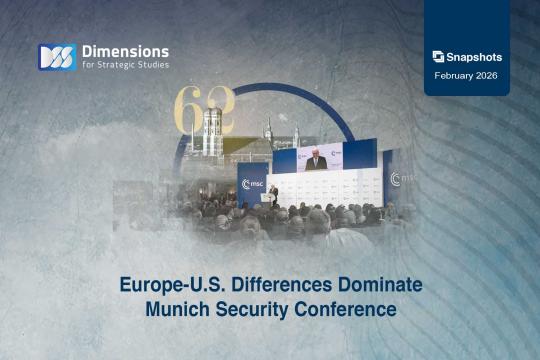
Houthi Delegation in Riyadh: Paving the Way for Houthi Legitimacy Over the Official Government
2023-09-222157 view
For the first time since the war in Yemen began, Riyadh, the Saudi capital, hosted a Houthi delegation, spearheaded by their spokesperson, Mohammed Abdul Salam. This historic visit was facilitated through the diligent mediation efforts of Oman, particularly after the Saudi Crown Prince, Mohammed bin Salman (MBS), met with Sultan Haitham bin Tariq in Oman on September 11, 2023. Building on this momentum, the Saudi Foreign Ministry extended an official invitation to the Houthi delegation on September 14, underscoring the continuation of peace talks initiated by the Saudi ceasefire proposal announced in March 2021. Furthermore, this invitation extends the diplomatic engagements held in Sana'a from April 8-15, 2023, where a Saudi team, led by their ambassador to Yemen, Mohammed Al Jaber, engaged in substantive discussions with the Houthi representatives, all under the watchful mediation of Oman.
To fully grasp the context, it is crucial to note that at the beginning of April 2022, a UN-sponsored ceasefire was announced, lasting for two months. This led to the reopening of Sana'a airport and eased the procedures for ships to enter the Hodeidah port, which was under Houthi control. The ceasefire was renewed twice. However, by the start of October the same year, it was announced that efforts to renew the truce had faltered. Despite this, the situation remained unchanged; the undeclared state of ceasefire persisted, leaving Yemen in a state of neither complete peace nor outright war.
Throughout the tumultuous period of war, countless negotiations took place between the Houthi group and the legitimate government. Yet, each attempt at dialogue eventually ran into a dead-end. However, the landscape shifted after the announcement of a Saudi-Iranian rapprochement on March 10th of the current year.
By April, a fresh round of discussions commenced. But this round bore a different complexion; it was a direct exchange between Saudi Arabia and the Houthi faction, conspicuously bypassing the legitimate Yemeni authority, the other primary player in this conflict. Although the talks hit snags along the way, the groundbreaking visit of the Saudi delegation to Sana'a, engaging directly with the Houthis on a plethora of issues, signified a monumental leap forward, paving the way for another potential round of dialogue.
As the Houthi delegation, accompanied by an Omani team, journeyed from Sana'a to the Saudi capital, Riyadh, on September 14, the second round of meetings between the Houthis and the Saudis commenced. Outcomes, anticipated to be revealed in the coming days, hold the potential to transform the equation of the Yemeni crisis.
On the other hand, the legitimate government, which was conspicuously absent from the negotiations, announced its endorsement of any peace process in line with the three key reference points:
The Gulf Initiative, which transitioned power from President Ali Abdullah Saleh to Abdrabbuh Mansur Hadi through a public referendum.
The National Dialogue Conference that brought together various Yemeni factions, leading to the idea of a federal Yemen.
UN Resolution 2216, which imposes an arms embargo on the Houthi group.
The Yemeni Parliament cautioned against any agreements outside these parameters, while the Shura Council welcomed peace efforts consistent with these references. Additionally, the U.S. State Department, the U.S. National Security Advisor, the United Kingdom, and the UN Security Council have all expressed their support for the peace endeavors led by Saudi Arabia and the Sultanate of Oman.
Based on the information provided, the current negotiations aim to settle the Yemen issue for Saudi Arabia. The kingdom has been financially and politically drained over the past years due to the war in Yemen. The intent is to transition Saudi Arabia from being a party in the conflict to a mediator, facilitating a solution among the Yemeni factions.
If an agreement is announced between the parties without adhering to the three key reference points, it will merely represent a prolonged truce and a postponement of the conflict. This would implicitly acknowledge the Houthi group's legitimacy as an armed entity. Historically, the Houthi faction hasn't been receptive to any previous negotiations that required them to disarm. Their current responsiveness to talks can be attributed to the potential gains at hand. With the opening of ports and airports and the potential increase in revenues, the Houthi group's power will undoubtedly amplify. This might serve as an opportunity for them to prepare for upcoming battles, seeking to reignite the conflict and expand their territories.
As long as the Houthi group retains its military strength, it will remain a perpetual threat to Saudi Arabia. Their potential to resurge and expand their influence implies that the current peace process, if not comprehensive and holistic, might be a temporary lull before the storm resumes.





